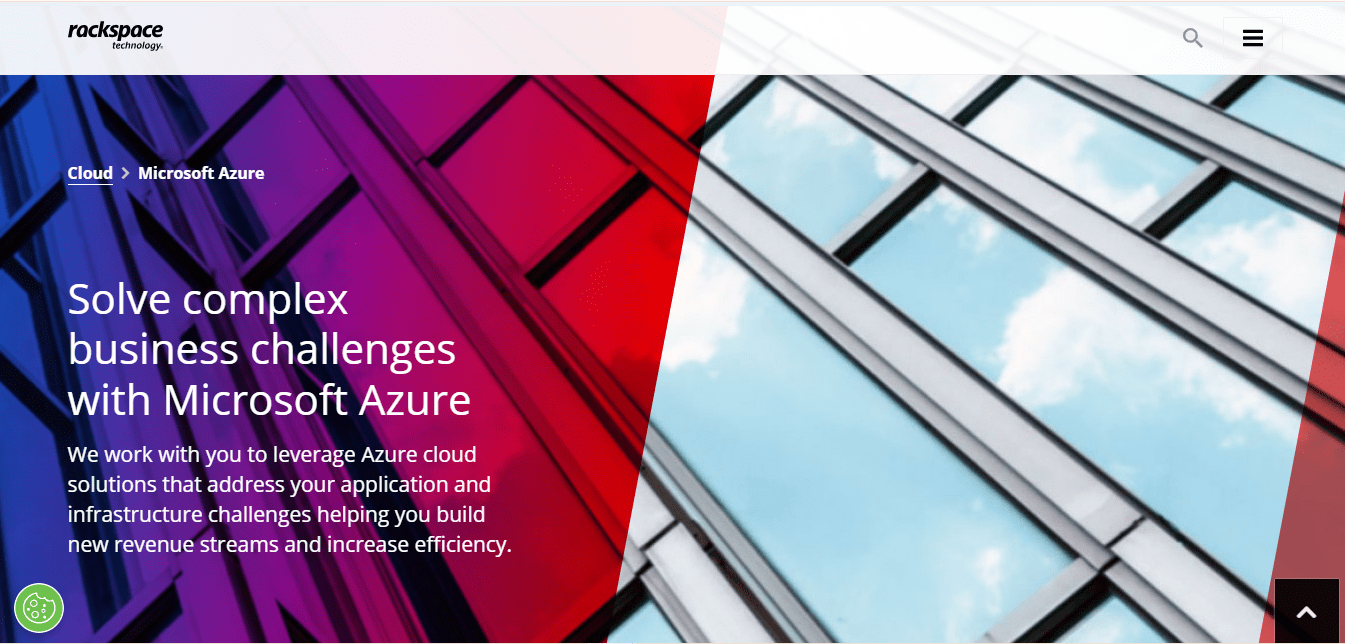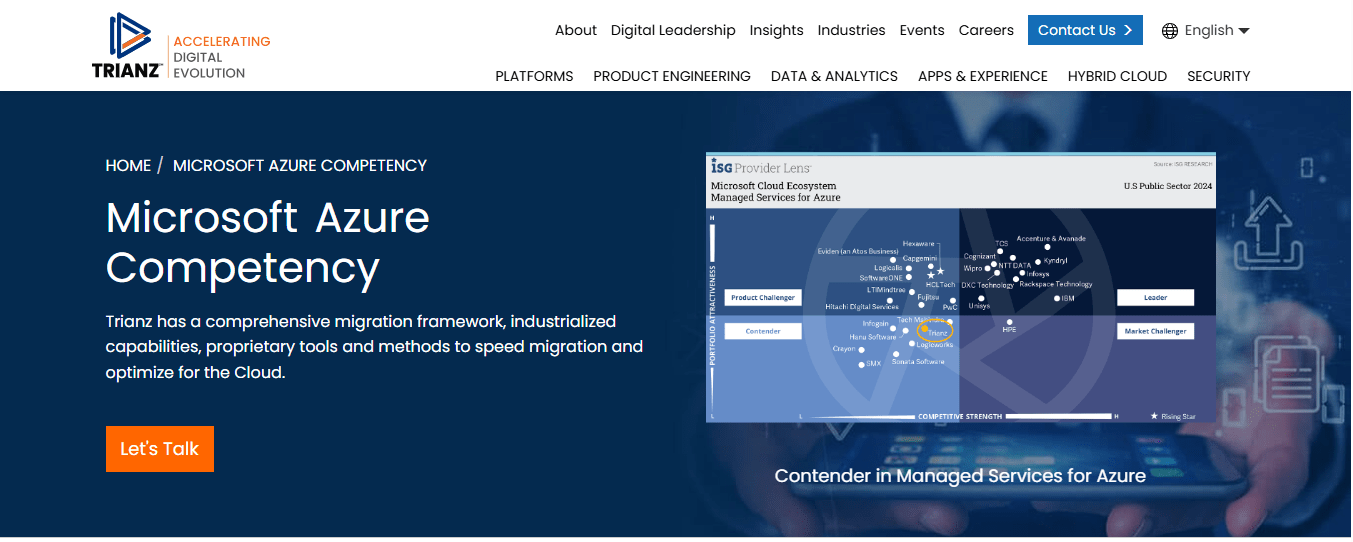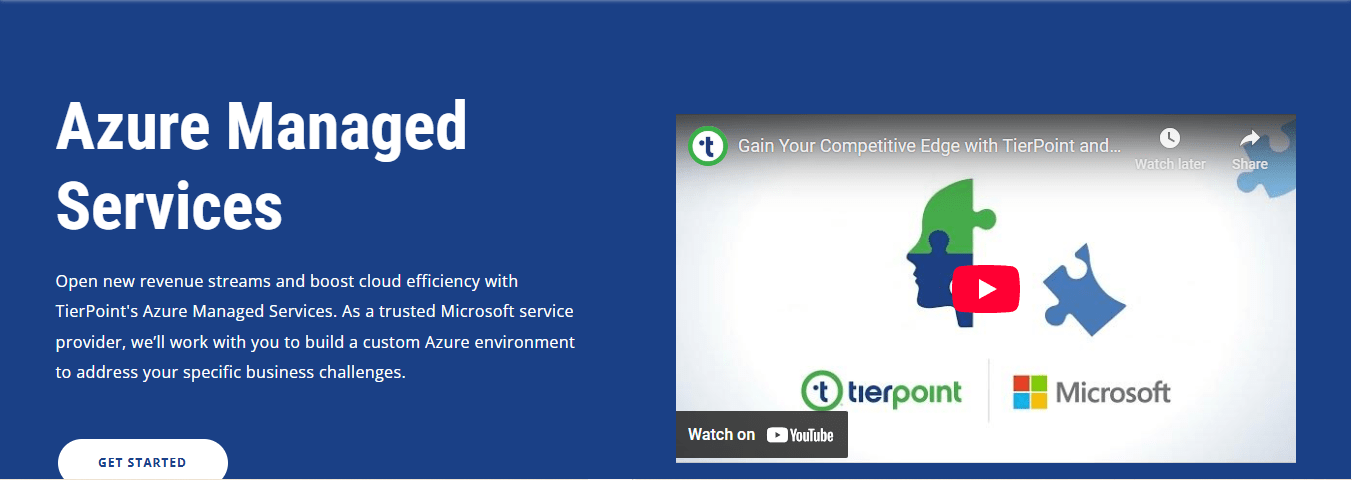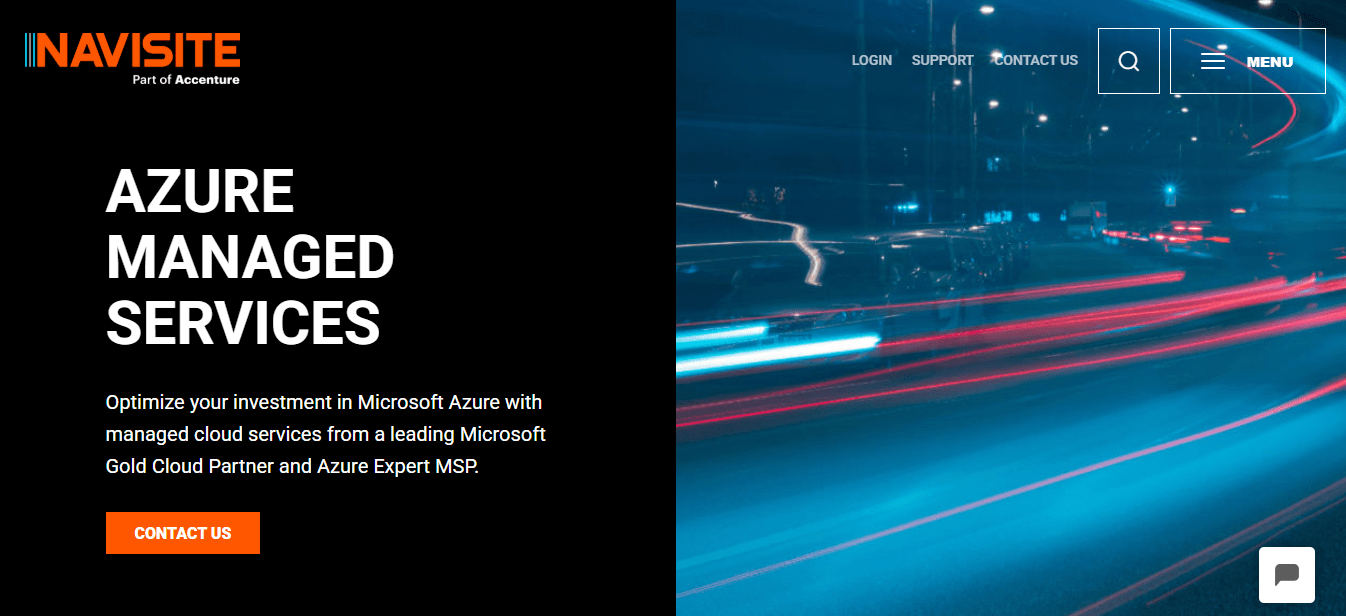When businesses choose to manage their Azure cloud environment without a Managed Services Provider they face several challenges that can impact costs, security, performance, and business growth. Microsoft Azure managed services vendors are independent companies that have built their entire business model around becoming experts in Azure cloud services. Think of them like specialized contractors who have deep expertise in managing Azure cloud environments.
These vendors act as strategic partners, taking responsibility for the day-to-day operations, security, compliance, and optimization of Azure environments while allowing businesses to focus on their operations. With Microsoft Azure managed services vendors, organizations can use enterprise-grade cloud infrastructure without maintaining extensive in-house Azure expertise, reducing operational overhead while ensuring optimal performance and security.
Top 10 Microsoft Azure Managed Services Vendors
1. Accenture

Accenture delivers managed services and cloud-based solutions across Azure, AWS, and Google Cloud. They specialize in cloud strategy, consulting, and operations, helping businesses enhance security, scalability, agility, and migration efforts. Accenture also assists in defining cloud support roles and operating models.
Features
- Provides end-to-end cloud migration strategies
- Offers 24/7 monitoring and technical support
- Optimizes performance across cloud environments
- Manages cloud security, compliance, and access control.
Pros
- Operates an extensive global delivery and support network
- Brings deep industry-specific expertise across multiple verticals
- Maintains a strong strategic partnership with Microsoft
- Offers a full-service portfolio across the entire Azure ecosystem
Cons
- Charges premium fees, making services costly for small businesses
- Receives frequent complaints about poor customer support responsiveness
Verdict
Best suited for large enterprises that need a comprehensive digital transformation, global reach, and end-to-end cloud management.
2. Wipro

Wipro offers a full suite of Microsoft Azure services designed to support businesses through every stage of their cloud journey. They help modernize legacy applications by re-engineering them to run efficiently on Azure, implement cloud-native strategies to build scalable and resilient architectures, and develop intelligent, cloud-based applications that leverage AI and data analytics to drive business innovation. These services support both hybrid and multi-cloud environments, ensuring flexibility and operational efficiency.
Features
- Manage Azure infrastructure end-to-end
- Deliver application modernization services
- Enable DevOps and automation pipelines
- Ensure security and compliance
- Provide cost optimization and governance tools
Pros
- Offer competitive pricing models
- Bring strong technical and engineering expertise
- Allow flexible engagement structures
- Maintain a reliable track record with enterprise clients
Cons
- Operate with limited presence in certain geographic regions
- Face communication delays due to time zone differences
- Show less specialization in niche or highly regulated industries
Verdict
Wipro stands out as an excellent option for mid to large enterprises looking for cost-effective Azure management backed by strong technical capabilities and global delivery experience.
3. Infosys

Infosys’ comprehensive suite of Azure managed services is specifically made for industries like financial services, healthcare, and manufacturing. Enterprises aiming for cloud transformation and improved operational efficiency form their primary client base. Through its Infosys Cobalt platform, Infosys provides Cloud Advisory and Core Services, enabling businesses to build and manage cloud ecosystems with precision and efficiency.
Features
- Develops cloud-native applications
- Optimizes Azure infrastructure for performance and cost
- Offers data analytics and AI-driven services
- Implements automated monitoring and issue remediation
Pros
- Drives digital transformation with strategic solutions
- Automates operations effectively with advanced tools
- Offers competitive and flexible pricing structures
- Utilizes proven methodologies and enterprise-grade frameworks.
Cons
- Relies heavily on an offshore delivery model
- Experiences occasional quality inconsistencies across delivery teams
Verdict
Infosys is ideal for organizations that prioritize digital transformation and require strong automation capabilities across their Azure environments.
4. Rackspace

Rackspace Technology’s Microsoft Azure certified cloud experts bring deep expertise in cloud strategy, cloud-native development, containers, application modernization, AI/ML Ops, IoT, and workload management. They help businesses integrate existing infrastructure with Azure by delivering services such as cloud migration and workload management. Their strength lies in managing hybrid cloud environments.
Features
- 24/7 Azure support and monitoring
- Multi-cloud management platform
- Security and compliance services
- Application services and optimization.
Pros
- Delivers strong support for workload management
- Offers flexible cloud migration options
- Serves different industries.
Cons
- Lacks transparent pricing
- Primarily targets larger enterprises
Verdict
Ideal for mid-market companies looking for top-tier customer service and expert technical support.
5. Trianz

Trianz provides Azure managed services that focus on cloud transformation, data analytics, and digital strategy. They primarily serve businesses aiming to use data for strategic decisions and operational efficiency. It targets healthcare, finance, retail, technology, and manufacturing.
Features
- Data analytics
- Cloud transformation
- Digital strategy
- IT consulting
- Business intelligence
Pros
- Delivers cloud transformation services
- Prioritizes business intelligence and analytics
- Enables strategic, data-driven decision-making.
Cons
- Caters mostly to large enterprises
- May require specialized support for implementation
Verdict
Trianz is a strong choice for mid-size to large enterprises that are prioritizing data-driven decision-making and digital transformation. Their services are well-suited for organizations looking to modernize infrastructure, enhance agility, and gain strategic insights through advanced analytics and business intelligence.
6. NTT Data

NTT Data specializes in Azure cloud management services, focusing on migrating and modernizing applications using enterprise-grade Azure solutions. The company delivers flexible and resilient applications through solutions and innovative delivery models. NTT Data promotes a pay-as-you-go approach, allowing businesses to subscribe only to the services they need, helping to reduce unnecessary costs.
Features
- Azure infrastructure services
- Application migration and modernization
- Managed security services
- Digital workplace solutions
- Industry-specific cloud platforms.
Pros
- Maintains an extensive global presence
- Offers deep expertise across multiple industries
- Provides comprehensive digital workplace solutions
Cons:
- Caters primarily to large enterprises
- May require specialized support for implementation.
Verdict:
A solid choice for Asia-Pacific organizations and companies looking for reliable, cost-effective Azure management solutions.
7. RapidScale

RapidScale offers cloud migration, management, and compliance services. They cater to industries like healthcare and finance, delivering solutions designed to meet strict regulatory standards. Their expertise in healthcare compliance stands out through services like Well-Architected Reviews and compliance assessments that ensure your cloud environment aligns with required regulations.
Features
- Delivers solutions for compliance-heavy sectors like healthcare and finance
- Offers Well-Architected Reviews to assess and improve cloud environments
- Provides compliance assessments to ensure regulatory alignment
Pros
- Prioritizes regulatory compliance, especially in healthcare
- Offers in-depth compliance assessments
- Provides 24/7 customer support.
Cons
- Primarily serves compliance-focused industries
- May not be a cost-effective fit for small businesses
Verdict
RapidScale is ideal for mid-sized to large organizations in compliance-heavy industries like healthcare and finance. However, they may not be the best fit for small businesses or startups with limited budgets or less stringent compliance requirements.
8. Tata Consultancy Services (TCS)

Tata Consultancy Services (TCS) provides Azure managed services focusing on cloud transformation, application management, and analytics. Their main client base includes financial institutions looking for efficient, secure, and scalable cloud solutions. TCS helps businesses particularly in the financial sector transform operations, manage applications, and harness analytics for smarter decision-making.
Features
- Azure migration and transformation
- Cloud-native application development
- Managed security services
Pros
- Focuses heavily on financial services
- Demonstrates deep expertise in cloud transformation
- Offers advanced analytics capabilities
Cons
- Does not provide transparent pricing
- Primarily serves large enterprises
Verdict
Their strength lies in cloud transformation, regulatory compliance, and deep industry expertise. However, for smaller businesses or startups, TCS may not be the best fit.
9. TierPoint

TierPoint is a Certified Solutions Partner with Microsoft, backed by over a decade of Microsoft expertise. The company primarily serves regional businesses that need reliable and efficient cloud solutions to support daily operations. They offer robust disaster recovery services to help teams maintain business continuity and reduce downtime during disruptions.
TierPoint also delivers strong security services that keep data protected and compliant with industry standards addressing key concerns for modern businesses.
Features
- Manage Azure environments 24/7, including data backup and infrastructure scaling
- Optimize cloud costs with advanced visibility into usage and continuous cost control
- Monitor security, manage firewalls, and apply system patches
- Handle Azure configuration and change management
- Provide comprehensive disaster recovery services
Pros
- Cater specifically to regional businesses
- Deliver strong and reliable disaster recovery solutions
- Offer efficient cloud hosting options
Cons
- Do not provide transparent pricing details
- Focus mainly on regional markets, which may limit availability for global enterprises.
Verdict
TierPoint is a solid choice for mid-market organizations that want strong hybrid cloud solutions combining Microsoft Azure with their existing on-premises infrastructure.
10. Navisite

Navisite manages Azure services with a focus on cloud migration, application management, and IT security. They serve primarily midsize companies that want secure cloud solutions to improve their operations. Navisite’s application management services keep applications running at peak performance and quickly address performance issues. Their IT security services safeguard data, ensure compliance with industry standards, and tackle critical security concerns.
Features
- Cloud migration
- Application management
- IT security
- Compliance
- Data protection.
Pros
- Specializes in serving midsize companies
- Cloud migration services
- Offers comprehensive IT security solutions
Cons
- Does not provide transparent pricing details
- Service offerings can be complex to navigate.
Verdict
Their Azure Expert MSP status and long-term Microsoft partnership make them well-suited for companies that want deep Azure expertise from a provider that has proven their capabilities through Microsoft’s rigorous certification process.
There is competition among Microsoft Azure managed services vendors, each pushing innovation and improving service delivery models. You can benefit from better pricing, higher service quality, and more specialized solutions that they offer.
Choosing the right partner starts with clearly understanding your current state, future goals, and organizational limitations. The most successful Azure projects come from partnerships where the vendor acts as an extension of your team, sharing your success metrics and growth objectives

